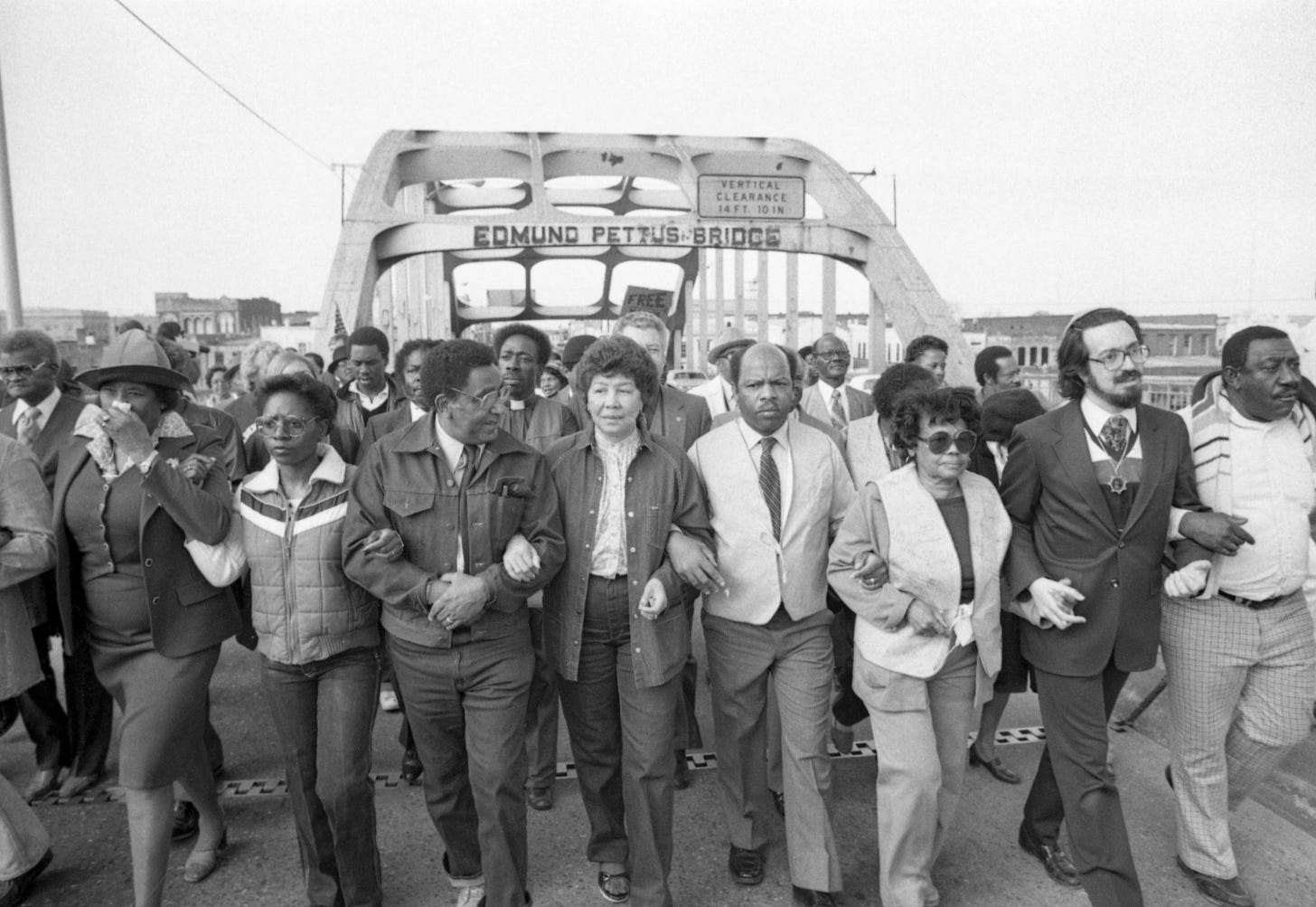
You wake to the news that John Lewis has died, at age 80. You read Katharine Q. Seelye's fine obituary in the New York Times to refresh your memory of his life. And you’re overwhelmed.
All you can think is: What a life! What a man!
But you do think a few other things, perhaps obvious things, because the lessons of Lewis’s life, like many important lessons, are in some ways obvious.
You think what an amazing saga the American civil rights movement was, surely one of the most notable efforts and significant achievements in our history.
You think how amazing it is that, two-thirds of the way through the 20th century, the civil rights movement was needed in the first place, and that it faced such opposition. But you also think how remarkable a movement it was, how resolute and principled. And you think of the stature and dignity and courage of its leaders.
Especially the courage. You think, as Churchill put it, that
Men must be judged in the testing moments of their lives. Courage is rightly esteemed the first of human qualities, because, as has been said, it is the quality which guarantees all others.
You think of that moment 55 years ago at the Edmund Pettus Bridge (soon, surely, to be renamed the John Lewis bridge), on Bloody Sunday, March 7, 1965. You think of John Lewis leading 600 people demanding the voting rights they had been denied across the bridge into a mob of state troopers in riot gear. You think of the demonstrators' silent refusal to turn back. You think of the beatings Lewis and others suffered there, and elsewhere. And you know that five months later, President Lyndon Johnson signed the Voting Rights Act into law.
You think of so much else in John Lewis’s life. You think of his lifelong commitment, after he had already done so much, to the fight for justice as he saw it. You think of his steadfast determination and personal dignity in conducting that fight.
You think of a life at once so consequential and so admirable.
And you think: Can Americans, today and tomorrow, live up to his example?




